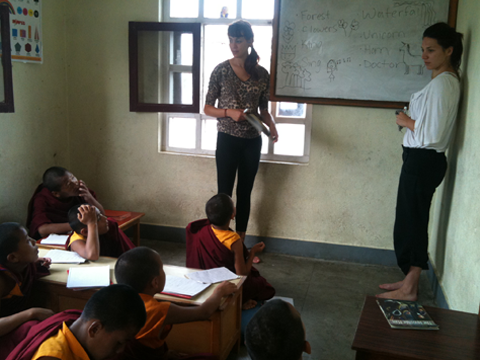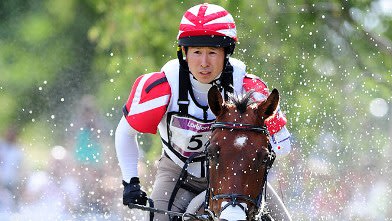We all have Buddha nature, but with some people it shows more. The following delightful story is from the New York Times...........
The man who lost his voice was a gentle man who didn’t ask terribly much of life. He lived in a miniature space in a single-room-occupancy residence on the corner of 74th Street and Third Avenue in Manhattan, above J. G. Melon, the popular restaurant and bar known for succulent hamburgers. And he was a New York story.
He was a New York story because he didn’t have a lot and yet he gave a lot. And in return he got what New York for all its busyness so often offers those who could use a good dose of it — kindness. The city can be cold and aloof and you can live crunched amid its population and remain lonely and overlooked. You can also be someone unremarkable and be made to feel like Mr. Big Shot.
The name of the man who lost his voice was Bernhardt Wichmann III. Sounds like an old-money name for sure, but any money ever attached to it was no longer visible.
His story revolves around a pair of doormen. In 1994, Jorge Grisales became a night doorman at the Mayfair, an apartment building at 207 East 74th Street. His shift began at midnight, when the city slows down but keeps breathing.
When you are a doorman, you notice things. You especially notice recurring people.
Mr. Grisales became aware of a man who almost nightly ambled past the building. He had a glistening face with a trimmed beard and he sported a big smile. Six-foot-something. As he walked, he would bend down and dutifully scoop up litter, tidying up the neighbourhood.
One sweaty summer evening, the smiling man waved at the doorman and paused. Mr. Grisales said, “How are you?” The man clutched scraps of paper. He wrote something down and handed it over. It said: “Hi, my name is Bernhardt but call me Ben. I can’t talk, but I can hear.”
Something instantly clicked between them. There was a delicious spirit about Ben. Two years later, Juan Arias joined the door staff, and Mr. Grisales introduced him to Ben. They, too, clicked. They talked. He wrote. On his notes, he always drew a smiley face.
Over time, the two doormen learned some blurred snippets about Ben Wichmann. That his parents came from Germany to Davenport, Iowa. That he was born in 1932. That he had served in the United States Army and was in the Korean War. That he came to New York and became an architectural draftsman. That, among other things, he worked on closets as well as decks and porches for houses in the Hamptons. That he loved opera and classical music. That he was gay. That he had a sister. That his parents and sister were dead and he had no family.
And that in 1983 he had polyps removed from his larynx, and that he had not been able to speak since. He wasn’t entirely sure why.
They discovered that since 1991, Ben had lived in that tiny third-floor room down the block that cost $10 a day. He had few possessions and eked by on Social Security. In a city where so many have so much, he had practically nothing. Yet it was enough, always enough. And inside him beat a heart bigger than a mountain.
He seemed unrelievedly happy. That happiness bounced off him and settled on others.
People up and down the block came to know Ben. He always petted people’s dogs. Admired the flowers. His cheery presence made East 74th Street brighter than it would have been without him.
“He charmed people,” Mr. Grisales said. “He always smiled. He never complained. He was just wonderful.”
Mr. Arias said: “He had plenty of reasons to be unhappy. But I never saw him unhappy.”
Now and then, he would stop in at J. G. Melon, plant himself at the bar and have a glass of wine and maybe a salad and converse through his written expressions with customers and the staff.
He would bring the doormen coffee and a Spanish newspaper. And they would fall into meandering exchanges — spoken words from the doormen, scribbling from Ben. Oh how they relished one another’s company.
Mr. Grisales was shaky with his English. That was why he worked the midnight shift. Ben tutored him. If Mr. Grisales mispronounced a word, he would write out how to say it, which syllables to emphasise, what words it rhymed with.
Mr. Grisales polished his English and graduated to an earlier shift.
The doormen gave Ben gifts — shirts or shoes, things he needed. So did others on the block. Joan Gralla, a reporter at Newsday who lives near the Mayfair, gave him sweaters, hats, a yellow rain slicker. For years, she got him a ticket to the Metropolitan Opera. He would dress up in his best clothes and have the time of his life. She would tell him the ticket was from her dog, Clementine.
Once, when the seat was exceptional, he wrote that Clementine must have some pull.
“Ben was just magical in bringing out the best in people,” Ms. Gralla said.
Ben had many medical issues. He came to rely on the doormen to make — or cancel — doctor appointments. If something was urgent, he would write out the note to them in red ink.
Saturday, 30 July 2016
Wednesday, 27 July 2016
Another Zen Monk at the Olympics.
You may remember that back in 2012 we reported that a Japanese Buddhist monk was competing in the Equestrian Individual Eventing at the London Olympics. Kenki Sato was from the Myoshoji temple in the mountains near Nagano, where his father, Shodo, is the 25th master of the 460-year-old temple and adjacent horse-riding club.
He says his religious discipline helps him when he's riding: "Before the competition starts I concentrate. I'm behaving more like a monk." Kenki followed his younger brother Eiken, who also trained as a priest and rode at the Beijing Games.
Now another Japanese Zen monk, Kazuki Yazawa, is entering the Rio Olympic games. Kazuki is a Buddhist priest at the ancient Zenkoji Daikanjin Temple in Nagano prefecture. He is a slalom canoer who has competed since the mid-2000s. At the 2008 Summer Olympics in Beijing, he was eliminated in the qualifying round of the K-1 event finishing in 18th place. Four years later at the London games he was able to qualify for the final of the K-1 event where he finished in 9th place.
He became a monk in 2013 but in Zen that does not preclude one from secular activities and interests, (even including marriage and having a family).
He says his religious discipline helps him when he's riding: "Before the competition starts I concentrate. I'm behaving more like a monk." Kenki followed his younger brother Eiken, who also trained as a priest and rode at the Beijing Games.
Now another Japanese Zen monk, Kazuki Yazawa, is entering the Rio Olympic games. Kazuki is a Buddhist priest at the ancient Zenkoji Daikanjin Temple in Nagano prefecture. He is a slalom canoer who has competed since the mid-2000s. At the 2008 Summer Olympics in Beijing, he was eliminated in the qualifying round of the K-1 event finishing in 18th place. Four years later at the London games he was able to qualify for the final of the K-1 event where he finished in 9th place.
He became a monk in 2013 but in Zen that does not preclude one from secular activities and interests, (even including marriage and having a family).
Tuesday, 19 July 2016
Full Moon - Gratitude
 Devotion and respect .
Devotion and respect .should be offered to those
who have shown us the Way.
Dhammapada v. 392
One of the best ways of nurturing wholesome qualities within ourselves is to admire those qualities in another. As disciples of the Buddha we all aspire to awaken from unawareness, but we know how hard the task can be. Of course we want to take responsibility for the difficulties we encounter along the way, but it doesn't help to get lost in thoughts about those difficulties. We also need to take responsibility for developing the sense of goodness that sustains us along the path. Sometimes just the simple act of intentionally dwelling on thoughts of respect and gratitude towards our teacher is what is called for.
Thursday, 7 July 2016
Fireworks, Fear and Our Fellow Beings
The West Wight Sangha is located in Totland near to the Needles which were recently voted one of the most naturally stunning UK landmarks. The Needles and their adjoining headland form one side of Alum bay, home to the Needles Pleasure Park which is shortly to commence it's season of ‘Music and Magic in the Skies’ evenings, described as a pyromusical extravaganza every Thursday night from the end of July to the end of August. In short, fireworks apparently with even more added noise.
In the past I've enjoyed these displays myself and don't want to be a killjoy about them but seeing the sheer terror they induce in our now elderly dog I dread this time of year. It used to be that there were a spate of fireworks around Bonfire Night (traditional British Catholic burning celebration) and that would be it, with the exception of the Cowes Week fireworks, until next year. Now it seems that any excuse, celebratory or just commercial, is enough to justify more explosions and more petrified animals.
The explosions caused by fireworks are known to cause some domestic pets heart problems, nausea, tremors, debilitating fears and dizziness. We all know that animals have far more sensitive hearing than us so it's not surprising that firework displays can leave pets severely stressed.
To add to the misery, Blackgang Chine (the UK's oldest amusement park) which is the other end of the Military Road from us is also having massive fireworks displays over the same period - only theirs are on Wednesday nights to spread the fear around!
But it doesn't have to be this way. The people of the town of Collecchio in the province of Parma in Italy are doing something about it. The local government has introduced new legislation forcing citizens to use silent fireworks as a way of respecting the animals and reducing the stress caused them. The fireworks are made by Setti Fireworks and produce a spectacular light show but without the deafening sounds normally associated with a firework display. They design their fireworks to fit the venue and the event that they will be used for.
I won't hold my breath waiting for the Isle of Wight Council to enact a similar regulation.
In the past I've enjoyed these displays myself and don't want to be a killjoy about them but seeing the sheer terror they induce in our now elderly dog I dread this time of year. It used to be that there were a spate of fireworks around Bonfire Night (traditional British Catholic burning celebration) and that would be it, with the exception of the Cowes Week fireworks, until next year. Now it seems that any excuse, celebratory or just commercial, is enough to justify more explosions and more petrified animals.
The explosions caused by fireworks are known to cause some domestic pets heart problems, nausea, tremors, debilitating fears and dizziness. We all know that animals have far more sensitive hearing than us so it's not surprising that firework displays can leave pets severely stressed.
To add to the misery, Blackgang Chine (the UK's oldest amusement park) which is the other end of the Military Road from us is also having massive fireworks displays over the same period - only theirs are on Wednesday nights to spread the fear around!
But it doesn't have to be this way. The people of the town of Collecchio in the province of Parma in Italy are doing something about it. The local government has introduced new legislation forcing citizens to use silent fireworks as a way of respecting the animals and reducing the stress caused them. The fireworks are made by Setti Fireworks and produce a spectacular light show but without the deafening sounds normally associated with a firework display. They design their fireworks to fit the venue and the event that they will be used for.
I won't hold my breath waiting for the Isle of Wight Council to enact a similar regulation.
Monday, 4 July 2016
NEW MOON - Release
Relinquish anger.
Let go of conceit.
Release yourself from all that binds you.
The pure-hearted who cling neither to body nor mind
do not fall prey to suffering.
Dhammapada v. 221
When we feel beset with difficulties, we readily look outside of ourselves for the causes. Certainly, the causes of the painful feelings that we experience could lie on the outside. But our Dhamma teachers point to another set of causes: those which turn natural painful feelings into suffering. Those causes lie on the inside. All beings, even the Buddha in his last life, experience pleasant and painful feelings. If awakened beings eat bad food, they are liable to develop a stomach ache. If they are surrounded by unruly, badly behaved disciples, they are likely to find that disagreeable. However, they don't add that extra ingredient which turns painful feelings into suffering. Because of their clarity of mind, anger and conceit do not arise. Having freed their hearts from all habits of clinging to the body/mind, they no longer fall prey to suffering.
Let go of conceit.
Release yourself from all that binds you.
The pure-hearted who cling neither to body nor mind
do not fall prey to suffering.
Dhammapada v. 221
When we feel beset with difficulties, we readily look outside of ourselves for the causes. Certainly, the causes of the painful feelings that we experience could lie on the outside. But our Dhamma teachers point to another set of causes: those which turn natural painful feelings into suffering. Those causes lie on the inside. All beings, even the Buddha in his last life, experience pleasant and painful feelings. If awakened beings eat bad food, they are liable to develop a stomach ache. If they are surrounded by unruly, badly behaved disciples, they are likely to find that disagreeable. However, they don't add that extra ingredient which turns painful feelings into suffering. Because of their clarity of mind, anger and conceit do not arise. Having freed their hearts from all habits of clinging to the body/mind, they no longer fall prey to suffering.
Subscribe to:
Posts (Atom)





